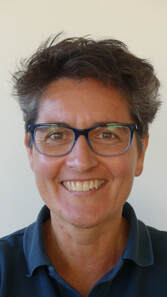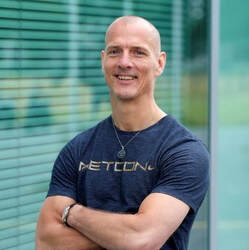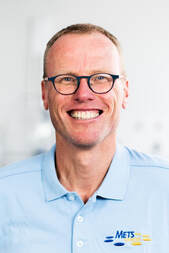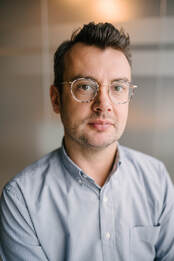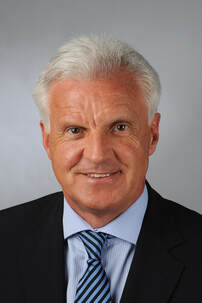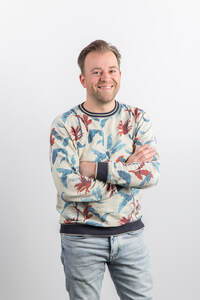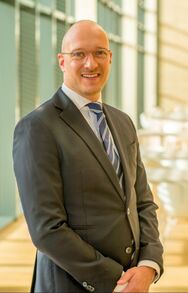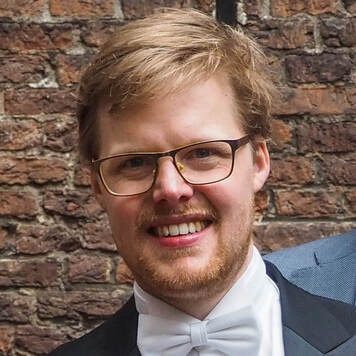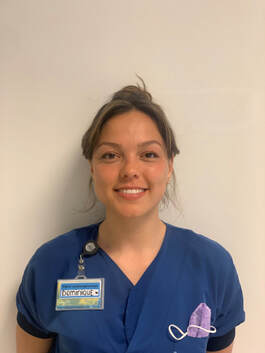Keynote Speakers
|
VERA MEEUSEN
|
'STAY WITHIN YOUR STRENGTH ZONE BUT MOVE OUTSIDE YOUR COMFORT ZONE.'
Associate Professor Vera Meeusen is a Clinical Nurse Consultant of the Endoscopy Unit. She started as Nurse Anaesthetist working in The Netherlands. She performed several clinical research projects focused on the prevention and prediction of postoperative nausea & vomiting and postoperative pain management. After obtaining her degree as Master of Arts in Health Care at the University of Amsterdam she continued her career as a manager in the perianaesthesia settings and as a senior hospital project officer. Vera’s PhD in Medicine research focused on workload, job satisfaction, personality profiles of nurse anaesthetists and the history of nurse anaesthetists in Europe.
After emigrating to Australia, she obtained her Professional Fellowship of the Australian College of PeriAnaesthesia Nurses (ACPAN), and became a Certified Health Manager and Associated Fellowship of the Australasian College of Health Service Management. She continued working in the perioperative environment. She has presented at national and international conferences and published multiple articles in peer reviewed journals and book chapters. Currently, Vera’s research is very diverse: staff and patient satisfaction, airway management, patient positioning, safety systems, delirium, and internationally, scope of practice of nurse anaesthetists. She is also a member of the Human Research Ethics Committee of Metro South Health. Professional activities include Associate Professor in Medicine at The University of Queensland, Country National Representative of the International Federation of Nurse Anaesthetist (IFNA), National President of ACPAN and Board member of the Gastroenterology Nurses College of Australia. As a member of the Steering Committee of the Queensland Gastroenterology Clinical Network, Vera is the Clinical Advisor of the project Flexible Models of Sedation for Low-risk endoscopic Procedures (FMSLEP). |
'THE WORLD STARTS OUTSIDE YOUR COMFORT ZONE'; HOW TO PERFORM UNDER PRESSURE
The environment for the perianaesthesia nurse could be demanding, with all kind of pressure. Pressure effects not only the ventilation of the patient, but also yourself and the team. In this meeting we challenge you to look, listen and feel your own pulse and breathing rate. What do you register under pressure and how can you perform without performance loss. How can you work as a top athlete. So come to this workshop if you want to be challenged out of your comfort zone.
|
ERIK HEIN
Erik Hein is a former police firearms instructor and simulation trainer. He designs and supervises stress exposure training for police, acute care and other high-pressure professions. Erik wrote the standard work "frontline training" for trainers of first responders. Together with Ruben Verlangen he developed the 2-day performing under pressure training for ambulance personnel and for acute care personnel in hospitals. Erik studied exercise science and psychology at university of Groningen.
Vertical Divider
|
RUBEN VERLANGEN
Educator and ambulance nurse at the METS Center in Bilthoven
Board member Dutch Resuscitation Council |
|
'FROM REACTIVE TO PROACTIVE, FROM OVERLOAD TO DATA DRIVEN; WHAT CAN WE REALLY EXPECT FROM AI?'
Bart Geerts is a trained cardiac-anesthetist, ICU physician and clinical pharmacologist.
He has an MSc in Biomedical sciences, an MD and PhD from Leiden University (Leiden, the Netherlands), and an MBA from IE University (Madrid, Spain). He was an honorary fellow in the ICU at University College London Hospitals. He has worked as an anaesthetist at Spaarne Gasthuis, Amsterdam UMC and OLVG hospitals. Bart has a research interest in the use of artificial intelligence in clinical decision making, and he has over 100 peer-reviewed papers including in Nature Medicine, JAMA and Science. He is the founder and CEO at Healthplus.ai, an Amsterdam-based HealthTech startup of 18 people that uses machine learning to predict postoperative infections from existing electronic health records data. This tool is now active in a number of hospitals across Europe. |
BART GEERTS
|
'PERIOPERATIVE GERIATRIC MEDICINE - WHERE CAN WE HELP.'
In all countries in the world life expectancy at birth increases, with a fast ageing population. That means we will see more and more elderly patients being operated upon. Most elderly are healthy, but a growing percentage of elderly patients are frail, with multimorbidity, multi pharmacy, malnutrition and mobility issues. About 30% of these frail elderly patients don't survive 6 months after major surgery. This requires a different team approach, whereby nurses, anesthesiologists, geriatricians, physiotherapists, nutritionists are involved besides the surgeon. Each of them has a specific task to detect issues in an early stage before the operation, but also after the operation. Up to 50% of these elderly experience postoperative delirium, which potentially will result in postoperative cognitive decline in the long run. Early detection in the recovery room is required to help these patients to recover faster. What is the impact? How to diagnose these frail patients? What to do? What to avoid? How can we best help them?
|
ANDRÉ VAN ZUNDERT
|
Professor Dr. André van Zundert, was for decades working at Catharina Hospital in Eindhoven, when he was asked - in 2012 - to set up an academic department of anesthesia at The Royal Brisbane and Women's Hospital (RBWH) in Brisbane, QLD, Australia. Currently, he is a professor at three universities, i.e., The University of Queensland; Queensland University of Technology and Queensland Brain Institute. This resulted in almost 500 scientific publications, 76 book chapters, and 4 major textbooks. van Zundert established at the RBWH a 'Centre for Excellence and Innovation in Anesthesia', which is an Australian first, offering teaching, training, testing equipment, quality care (audits, incident reporting) and research. He supervises teaching and training, but is also involved in supervising research (45 PhD-doctorates, of which currently 9). His research focused in the past on pain relief in obstetrics, which resulted in a major textbook 'Pain Relief and Anesthesia in Obstetrics'; improvements in regional anesthesia (e.g., thoracic segmental spinal anesthesia for the frail patient); and more recently improvements in airway management through visualization techniques, i.e., videolaryngoscopy and video laryngeal mask airways. Currently, Professor van Zundert works on reversal agents for general anesthetics in an attempt to decrease the potential impact of neuro-inflammation on the elderly brain. He obtained a special diploma in 'perioperative geriatric medicine'. Researchers at the Queensland Brain Institute are exploring these reversal agents on the brains of flies and other small animals, with very promising results. For all his discoveries and contributions van Zundert received international recognition and acclaim and was awarded many Prizes, Awards, and even Royal Distinctions.
|
|
'IMPROVING VASCULAR ACCESS OUTCOMES WITH A ONE-DEVICE POLICY; HANDLING THE PATIENT WITH A DIFFICULT INTRAVENOUS ACCESS'
Dr. Rick van Loon works a nurse anesthetist at the department of anesthesiology of the Catharina Hospital and as a senior researcher and lecturer at the department of perioperative care and technology of Fontys University of Applied Sciences. In my research project, focus was mainly on the decision-based application of technology to improve first attempt cannulation success during peripheral intravenous cannulation, which resulted in completion of my PhD thesis in 2021. Hereafter, I started follow-up research based on the study results, leading to the implementation of the one-device policy regarding vascular access management in daily clinical practice.
|
RICK VAN LOON
|
|
BART TORENSMA
|
'VERBAL MUSCLE: THE BRAIN VS STRESS. HOW TO BECOME THE HERO IN THE OR'
Dr. Bart Torensma started as a nurse and then worked as a nurse anesthetist for 15 years. While working there, he pursued a master's degree in clinical epidemiology. After that, he started his Ph.D. at Leiden University Medical Center and defended this in 2023.
At Harvard University, he is currently doing a postmaster Data scientist. During COVID-19, he worked for 2.5 years in the dedicated COVID ICU and currently for his own consulting company in science with a focus area bariatrics, giving lectures worldwide. As an ERAS expert, he supervises hospitals in the Arab Emirates. Throughout all his years as a nurse anesthetist, he has studied stress and brain activity and how it works together in the operating room. |
'GREENING THE OPERATING ROOM': FROM FOOTPRINT TO HANDPRINT
The climate crisis is the greatest public health challenge of the 21st century.
Increased occurrence of extreme weather events, such as wildfires, hurricanes, and floods, directly lead to injuries, death, and the spread of infectious diseases.
Climate change worsens air quality, indirectly leading to cardiovascular, respiratory problems and other health issues.
The healthcare system contributes to the emission of greenhouse gases and environmental pollution, exacerbating the climate crisis and leading to health issues.
Hospitals, and in particular the operating theatres, are a significant contributor to these emissions.
In this keynote lecture, Dominique Foss highlights the need to reduce the healthcare system's footprint and emphasizes the importance of increasing individual sustainability practices, or "our handprints".
Through showcasing sustainability projects at Amsterdam UMC and providing practical tips, Dominique Foss encourages healthcare professionals to take action towards a greener future."
Increased occurrence of extreme weather events, such as wildfires, hurricanes, and floods, directly lead to injuries, death, and the spread of infectious diseases.
Climate change worsens air quality, indirectly leading to cardiovascular, respiratory problems and other health issues.
The healthcare system contributes to the emission of greenhouse gases and environmental pollution, exacerbating the climate crisis and leading to health issues.
Hospitals, and in particular the operating theatres, are a significant contributor to these emissions.
In this keynote lecture, Dominique Foss highlights the need to reduce the healthcare system's footprint and emphasizes the importance of increasing individual sustainability practices, or "our handprints".
Through showcasing sustainability projects at Amsterdam UMC and providing practical tips, Dominique Foss encourages healthcare professionals to take action towards a greener future."
|
NIEK SPERNA WEILAND
Nicolaas H. Sperna Weiland (1988) is a consulting anaesthesiologist at the Amsterdam University Medical Center. He was born in Leusden, The Netherlands, obtained his M.D. at the University of Amsterdam (2012) and completed his residency in anaesthesiology at the same university (2018). One year later, he successfully defended his Ph.D. thesis 'Cerebral Haemodynamics During Anaesthesia' (2019).
His main areas of interest are cerebrovascular physiology and environmental sustainability on the operating room. He is the founder and chair of the Amsterdam UMC Centre for Sustainable Healthcare (2022), a collaborative hospital-wide initiative that connects healthcare professionals to researchers, educators and hospital management in a joint effort to green healthcare delivery in Amsterdam. Vertical Divider
|
DOMINIQUE FOSS
Dominique Foss (1995) started her Bachelor of Science in Nursing in 2012. After completing this study she began her career as a nurse at an oncological surgical department.
Her dedication to her patients and passion for nursing led her to pursue further education, and she received her degree as a High Care Nurse in 2021. But her commitment to excellence goes beyond her nursing duties. Dominique also loves watersports, particularly kitesurfing, and she understands the importance of taking care of the environment and a clean sea to fully enjoy its beauty. She has joined the Green Team in the operating room department and works tirelessly to promote eco-friendly practices among her colleagues. |

